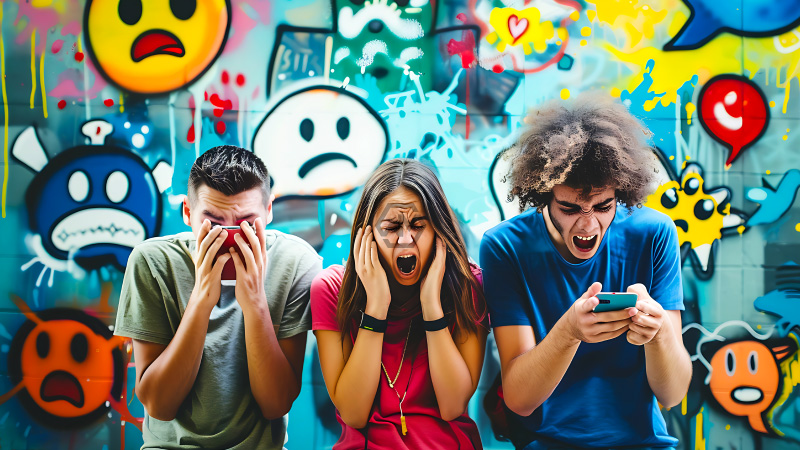- 75% of Gen Z feel social media harms their mental health, with frustration over content control being a key issue.
- Despite negative impacts, many Gen Zers use social media to alleviate boredom, connect with others, and seek distraction.
- Some believe social media can improve its effects on mental health, with positive content like comedy and animals providing emotional relief.
Social media’s impact on mental health is a growing concern for Gen Z, with a significant number reporting negative emotions stemming from their online experiences.
Despite the mental health challenges, Gen Z continues to engage with social media for various reasons, including boredom, the need for distraction, and a desire to connect with friends.
Gen Z’s Love-Hate Relationship with Social Media: Navigating Mental Health Challenges
Recent research reveals that a large portion of Gen Z finds social media detrimental to their mental health, with 75% attributing negative emotions to their online interactions. The study highlights the frustration users feel due to a lack of control over their feeds and the exposure to harmful content such as violence and explicit material.
Despite these challenges, social media remains an integral part of daily life for many Gen Zers. The platforms provide quick escapes from boredom, opportunities for social connection, and updates on global events. This frequent use reflects a complex relationship where the need for engagement often outweighs the desire to disconnect.
Looking forward, there is optimism among some users that social media could evolve to better support mental health. Positive content, including comedy, animals, and beauty-related posts, is seen as a potential area for improvement, with many hoping that future updates will enhance these positive aspects.
In light of these findings, users are encouraged to be proactive in shaping their social media experience. By engaging more with content that promotes happiness and well-being, individuals can potentially improve their overall mental health and enjoy a more balanced online presence.
Navigating social media’s impact on mental health requires a balanced approach, with users actively curating their feeds to include more positive and uplifting content. This proactive strategy can help mitigate some of the negative effects and enhance overall well-being.
“Algorithms play a significant role in the content we see on social media but there are simple actions people can take to ‘reset’ their feeds, so they can enjoy more of the positive content they’re craving.”



